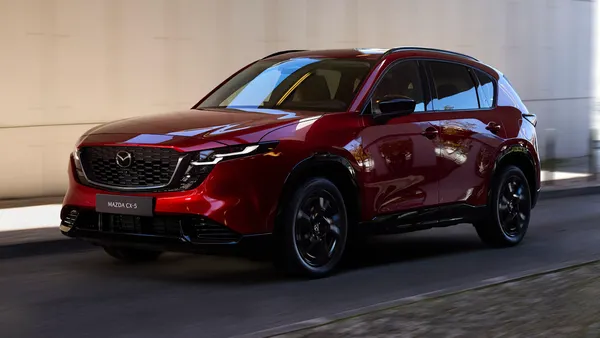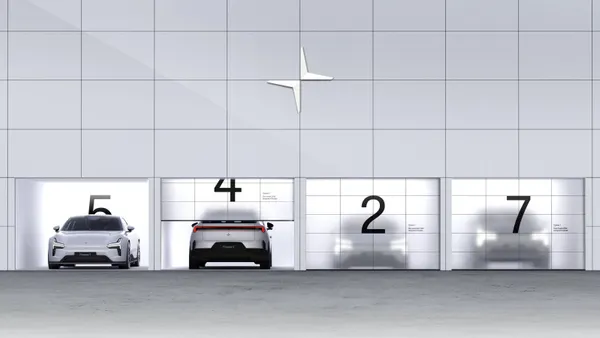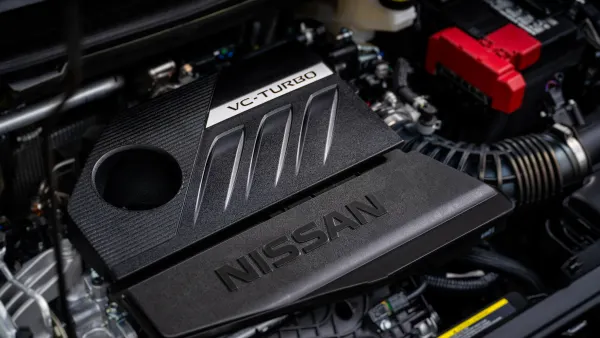Editor's note: This story is part of the WardsAuto digital archive, which may include content that was first published in print, or in different web layouts.
Consumer confusion over Brexit and the government’s policy on diesel are blamed for the first drop in U.K. vehicle production in eight years.
The Society of Motor Manufacturers and Traders says U.K. plant production dropped 3% to 1,671,166 units in 2017, but the result still was the second-highest in 17 years.
The biggest drop was in the build for the domestic market, which fell 9.8% to 336,628 units.
Exports accounted for 79.9% of production and eased 1.1% to 1,334,538 units.
The EU remained the U.K.’s biggest trading partner, taking 53.9% of exports, while the appetite for British-built cars rose in several key markets, notably Japan (+25.4%), China (+19.7%), Canada (+19.5%) and the U.S. (+7.0%).
SMMT CEO Mike Hawes says the decline in production – about 130,000 units below the midyear forecast – underscores the importance of government and industry working together to ensure the right conditions for the sector.
U.K. engine manufacturing rose 6.9% to a record 2.72 million last year, with 54.7% destined for car and van plants around the world, the majority in the EU.
The SMMT says the growth is the result of significant investment in plants now producing high-tech, low-emission gasoline and diesel engines. It says the more than 1 million diesel and 1.7 million gasoline engines built in Britain delivered £8.5 billion ($12.6 billion) to the economy.
With this in mind, SMMT is restating the need for an urgent agreement on the terms of a post-Brexit transition deal.
“This must be comprehensive, result in no change and allow business to continue as usual until a new trading relationship with the EU is in place,” Hawes says.
The SMMT says the Brexit deal must include guarantees the U.K. will continue to benefit from EU free-trade agreements and customs-union arrangements with non-EU countries throughout the transition.
Latest SMMT calculations show more than 10% of U.K. car exports go to countries with which the EU has advantageous trading arrangements, including South Korea, Canada, Turkey and, soon, Japan.
The industry also is calling for vehicle certifications that have been issued in the U.K. to remain valid at home and abroad so that vehicles can continue to be sold across the EU. It wants no new customs checks – which would add cost, cause delays and disrupt manufacturing – to be applied during the transition.
“We urgently need clarity on the transitional arrangements for Brexit,” Hawes says.
“We compete in a global race to produce the best cars and must continue to attract investment to remain competitive. While such investment is often cyclical, the evidence is that it now is stalling so we need rapid progress on trade discussions to safeguard jobs and stimulate future growth.”
The SMMT released figures showing U.K. automotive investment fell 33.7% in 2017, to £1.1 billion ($1.56 billion) from £1.66 billion ($2.3 billion) in 2016.
Commercial-vehicle manufacturing fell 16.7% in 2017 to 78,219 units as domestic demand plunged 25% to 29,320 units, its lowest since 2009.
Hawes says the fall reflects a drop in business confidence and fluctuating buying cycles, a natural feature of the market. The CV build for export markets fell 10.8% to 48,899 units, but this accounted for 62.5% of U.K. production – up from 58.4% in 2016 and the largest share in eight years.
Jaguar Land Rover was, for the third year in a row, named the U.K.’s largest automobile and engine manufacturer. It built 532,107 vehicles in 2017, down 2.3% from a record high in 2016, at its three plants in Birmingham and Liverpool. It also produced 305,907 Ingenium engines in Wolverhampton.
Nissan followed, down 2.4% with 495,206 units.









